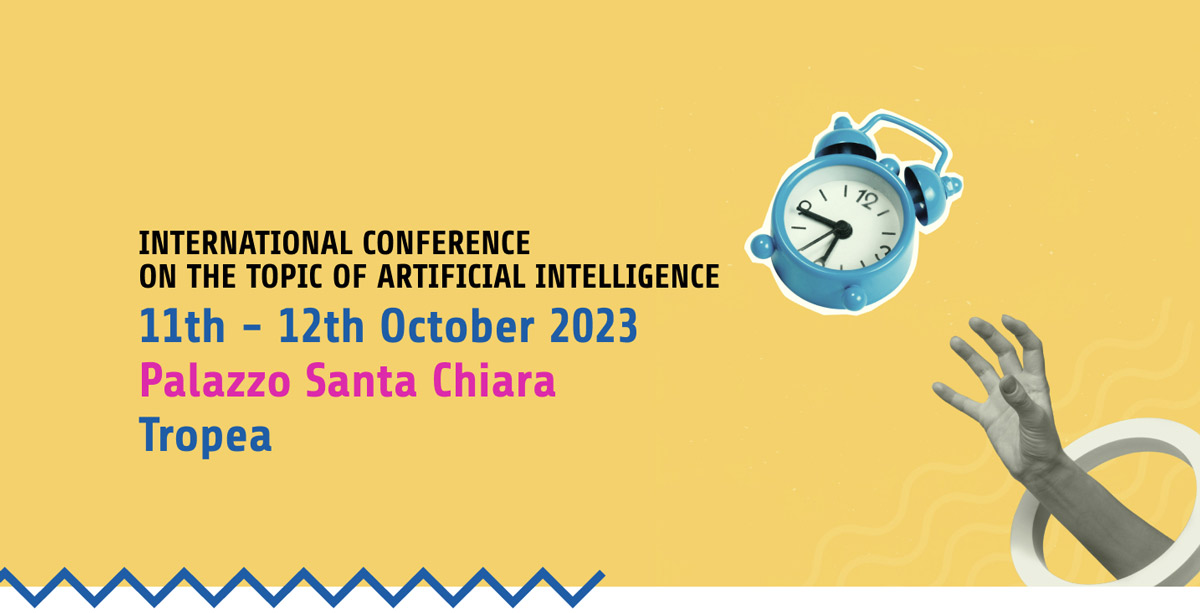
The event Techne e Sophia 2023
The subjects of this first gathering are the problems that the development of artificial intelligence creates in the spheres of ethics and legislation.
Artificial intelligence is considered, often by who is not acquainted to it, as the cause of all future catastrophies. Yet, it opens new horizons which, until only recently, were completely out of sight.
It is impossible to shut the door to the wind which is artificial intelligence: it might be better to get to know this new current, to study it in depth, without prejudice or fear, to identify its power to enable change and to evaluate how and what of the world it should aim to change. It might be better to take into account criteria of social justice and equality in the spheres of industry, research and labour when applying the potential of this new instrument.
As such, it is crucial to learn how to use this instrument so as to maximise its utility and in order to meet the needs of today’s society and to improve the life of all.
This is one of the goals of the first symposium of Techne & Sophia. The speakers of the conference will be representatives of different sectors, ranging from academia, to industry, to the EPO (European Patent Office).
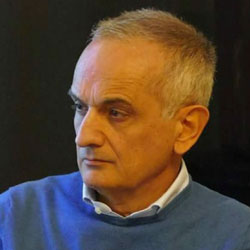
Prof. Domenico Talia
Professore Ordinario, Computer Engineering, University of Calabria – Cosenza (IT)
Professore Aggiunto Fuzhou University, Cina
Professore Onorario, Information Systems, Amity University , New Dehli, India
Co-fondatore e Partner di:
DtoK Lab, Rende, Italy (Research and development, Spin-off UNICAL)
Our Privacy and the Toaster: Data Brokers and Computable Behaviors
Several industry and commerce sectors exploit personal data for defining and implementing business strategies. However, those strategies should not conflict with people privacy and rights. Indeed, in the last two decades our privacy became one of the prices to pay to get (apparently) free advanced services. Citizens must be aware of that, and laws and regulations are key elements to protect personal data and individual’s privacy. This talk discusses data collection techniques, the role of data brokers and how data analysis uses personal data to compute people’s behavior.
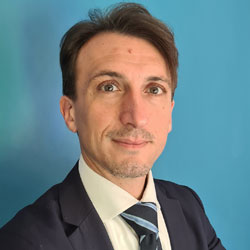
Prof. Gianluigi Greco
Gianluigi Greco is full professor of Computer Science at the University of Calabria, where he has held the position of Director of the Department of Mathematics and Computer Science since 2018. He is the President of the Italian Association for Artificial Intelligence.
He published more than 200 peer-reviewed research papers in various fields of Artificial Intelligence; His research activities have received numerous awards in leading international conferences and journals in the sector, including the IJCAI Distinguished Paper Award in 2018 and the IJCAI-JAIR Best Paper Award in 2008. He is EurAI Fellow, the most prestigious award conferred by the European Association for Artificial Intelligence (EurAI); he
is also Fellow of the Asian-Pacific Association for artificial Intelligence (AIAA); he received a Kurt Goedel Research Prize Fellowship from the Kurt Goedel Society, and he was awarded the AIxIA Marco Somalvico Award in 2009. He is a member of the editorial board of numerous computer-science journals and, in particular, he is Associate Editor of the Artificial
Intelligence Journal.
The state of AI in Italy: Lights and Shadows
The scenario of scientific and technological evolution of Artificial Intelligence at an international level will be analysed, reviewing the main successes of the last decade. Once the reference context has been defined, the state of the art in Italy will be described, in the field of research, training and the effects on the productive and entrepreneurial fabric.
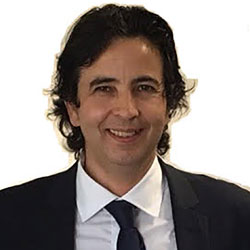
Prof. Mario Cannataro
Mario Cannataro is a full professor of computer engineering and the director of the Data Analytics research center at the University of Magna Grecia of Catanzaro, Italy. His current research interests include bioinformatics, health informatics, artificial intelligence, data mining, parallel computing. He has published 6 books and more than 300 papers in international journals and conference proceedings. Mario Cannataro is Editor-in-Chief of the Encyclopedia of Bioinformatics and Computational Biology and Associate Editor of Briefings in Bioinformatics and IEEE/ACM TCBB journals. He is a Senior Member of ACM, IEEE, BITS, SIBIM and AITIM.
Artificial Intelligence in Medicine: Challenges and Opportunities
Some challenges that need to be answered to fully use AI in medicine comprise: what are the (legal, ethical, etc.) norms the rule the use of AI in medicine? How the possible bias contained in the AI models is managed? How human expertise and values are integrated in AI algorithms? What are the essential rules and guidelines to ensure that AI application behave as advertised? How the training process and datasets are certified and approved? How explainability, bias and privacy issues are addressed?
The talk summarizes main opportunities and challenges of the application of AI in medicine and discusses possible future directions at various levels, including technological, medical practice and regulatory aspects.
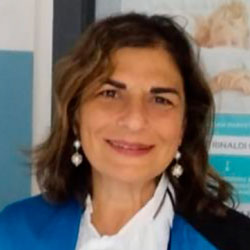
Prof.ssa Maria Colurcio
Full Professor of Business Economics and Management at the University of Magna
Graecia in Catanzaro. Rector’s Delegate for Sustainability at the University of Magna Graecia in Catanzaro. President of the Degree Course in Business Economics at the University of Magna Graecia in Catanzaro. Expert Evaluator (PEV) AVA – Anvur. Elected Member of the Board of Directors of the Italian Society of Management (SIMA). Associate Editor of SIJM – Sinergie Italian Journal of Management.
Research Projects: Responsible for various international and national research projects, including projects funded by Karlstad University, EU PAC Program, Design and design of sustainable business models Secs P08, and others.
Awards and Recognitions: Winner of various “Best Paper” awards and recognitions for scientific activity, including awards in Service Marketing, Technology & Innovation Marketing, and others. Editorial Committees and Affiliations: Member of various editorial committees and scientific societies, including SIJM, Italian Journal of Marketing, Italian Society of Marketing, Italian Society of Management, and others.
Teaching and University Coordination Experiences: Lecturer in Management and Marketing at the Complutense University of Madrid, University of Karlstad Sweden, and University Caxias do Sul – Brasil. Responsible for various Master’s and Doctoral modules and programs including LUISS Business School in Rome.
Ethical AI for a Better Society: The Challenging Task of Driving the Digital and Ecological Transformation in Italy
Artificial Intelligence (AI) is expected to play a significant transformative role for a better society and collective well-being in line with the goals of the 2030 Agenda UN.
To drive social innovation, AI must be built on ethical principles and human-centered values. The link between AI, ethics, and social innovation is quite unexplored in the literature and has never been more relevant as European countries develop national
plans for post-pandemic recovery. In Italy, the Plan for Recovery and Resilience (PNRR) identifies AI as a strategic asset for investment in all sectors to support the country’s transition to a more digital and sustainable economy and an inclusive society. This paper explains the role of ethical AI in the context of ecological and digital transformation, which is at the heart of the Italian Recovery Plan – Next Generation EU for Italy.
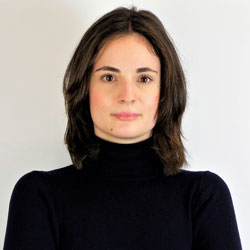
Prof.ssa Francesca Cerea
Adjunct professor of private law and family law at the University of
Bergamo. Contract professor of private law at the University of Lyon in the field of
Program International MINERVE.
Research fellow at the University of Bergamo, in Private law, as part of the research entitled «Legal certainty and predictive justice».
In 2023 spent a period as a Visiting research fellow at the Institut für Italienisches Recht of the University of Innsbruck to explore issues relating to the impact of new technologies on Italian, Austrian and European civil liability legislation.
Currently is a member of the Editorial Committee of the journal «Medical liability – Law and clinical practice» and of the journal «Accademia. The magazine of the Association of Italian civil lawyers”.
In 2022 obtained a PhD in Economics and Corporate Law (Business and Law) discussing the thesis entitled: «Damages from Artificial Intelligence: a new frontier of civil liability».
In 2020 obtained the qualification to practice as a lawyer at the Court of Appeal of Milan.
Use of Artificial Intelligence systems and civil liability profiles
The large-scale use of Artificial Intelligence (AI) systems in every sector of knowledge brings to the attention of the jurist, in particular the expert of private law, a series of relevant issues that force us to observe the traditional categories with a new look. concepts of the order.
Artificial Intelligence offers, in fact, great potential but entails, at the same time, the emergence of new risks, resulting, in particular, from its self-learning nature which allows such systems to interact with the surrounding environment and to alter it significantly, with the possibility of causing significant damage.
Faced with the use of algorithmic systems, should we perhaps imagine new tools that regulate the possible, consequent hypotheses of responsibility? Should mechanisms be envisaged other than traditional ones for attributing responsibility to those who must take responsibility for the malfunction or inefficiency of the AI system?
We will try to provide answers to these and other questions during the intervention.
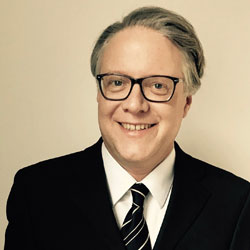
Prof. Martin Ebers
Martin Ebers is President of the Robotics AI Law Society (RAILS), AI Law Society, Germany, and Professor of IT Law at the University of Tartu, Estonia. Moreover, he is permanent fellow at the law faculty of the Humboldt University of Berlin, and co-director of the German Institute for Energy and Competition Law in the Public Sector. He taught and presented at more than 100 international conferences, is a member of several national and international research networks and published 17 books and over 120 articles in the field of Law and Technology, esp. Artificial Intelligence, as well as in Commercial, Private, European, Comparative and International Law. Martin Ebers holds a PhD degree in law and a habilitation from the Humboldt University of Berlin. In 2022, Martin Ebers was awarded a prestigious grant from the Wallenberg Foundation (Wallenberg AI, Autonomous Systems and Software Program – Guest Professorship at Örebro University, Sweden, to conduct research on “Private Rule-making and European Governance of AI and 4Robotics). His latest books are amongst other Algorithms and Law (Cambridge University Press, 2020); Rechtshandbuch Künstliche Intelligenz und Robotik (C.H. Beck Publishing, 2020); Algorithmic Governance and Governance of Algorithms (Springer Nature, 2021); Contracting and Contract Law in the Age of Artificial Intelligence (Hart Publishing, 2022); and Stichwortkommentar Legal Tech (Nomos Publishing, 2023).
The European Artificial Intelligence Act: The Right Approach?
The forthcoming Artificial Intelligence Act (AIA) of the European Union is the world’s first attempt to comprehensively regulate Artificial Intelligence, including ChatGPT. Once adopted, the AIA will affect many companies and change the lives and rights of many citizens. But how? In his keynote speech, Professor Martin Ebers will explain the main concepts of the AIA, discussing whether the regulation is the right approach or whether it will stifle innovation. Learn more about the impact of the AIA on citizens and companies, and how the regulation will affect the European economy.
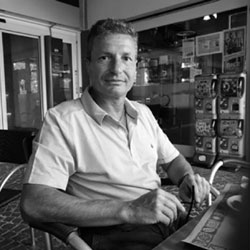
Ing. Guido Schiaffino
Senior AIOPS Automation Partner Technical Specialist
I have been working for more than 30 years in Information Technology in three worldwide corporations supporting customers and initiatives in an international context: ANIXTER, Candle, IBM. My main technology skills are on: Cloud Computing, Networking, Monitoring, Automation, Service Management, IT Operation Analytics and now Artificial Intelligence Operations (AIOPS)
At IBM I have the position of Senior AIOPS Automation Partner Technical Specialist I’ve been working as a Presales Solution Architect on Artificial Intelligence Operations, IT Service Management, Application Performance Management and Cloud solutions.
I am currently part of IBM Ecosystem program for developing business with Business Partners. From July 2015 to December 2021, I’ve been working into a PanEuropean support unit with the responsibility of providing high end presales support across Europe. This imply providing help for customer presentations, briefings, demos, RFIs, POCs across Europe.
AI is the hype, the present, the future, and the past in information technology. Why do organizations that build or use AI care about ethics?
This is a turning point because brings awareness in society of the new possibilities and, of course, brings also a little fear. We will see that this is the result of a long process of getting better and faster results out of the existing data. That people are already getting benefits out of AI in medicine and other important applications. But, now that these technologies are surfacing to “normal life” usage of any personal data is important to focus AI providers to know that the proper policies are implemented correctly on how data and results are used.
The purpose of AI is to augment human intelligence.
Data and insights belong to their creator.
Technology must be transparent and explainable.
We believe these are essential principles if AI is to realize its full potential. If we get it right, the benefits will be enormous.

Dr. Mike Williams
Dr Williams is partner at the International Intellectual Property firm, Marks & Clerk. Dr Williams has been originally trained as a computer scientist and he is an expert in patent matters relating to digital technologies, and in particular artificial intelligence (AI). Dr Williams is the lead partner on Marks & Clerk’s annual AI Reports, which examines the impact of the spectacular growth in AI on patent filings at the European Patent Office (EPO) over the last two decades.
AI Innovation through the lens of patent filings – Trends and Forecasts
While it may seem that AI has only entered mainstream consciousness and debate after the release of Large Language Models earlier this year, researchers and companies have been pursuing AI technologies for much longer. Academic papers provide one way to examine progress in AI, but patent filings give an insight into what companies are actually trying to protect. We have performed an analysis of every patent application for AI inventions filed at the EPO since 2020 and will share with you some of the trends in AI patent applications and use this to predict future developments.
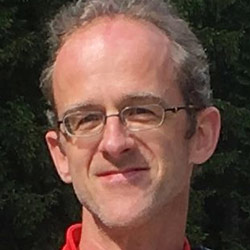
Dr. Ing. Martin Müller (EPO, Chairman of Board of Appeal)
Dr Martin Müller is chairman of the EPO’s Technical Board of Appeal 3.5.06, which deals with computer technology and artificial intelligence, and a member of the Enlarged Board of Appeal. He joined the EPO as an examiner in 1998, was appointed a member of the Boards of Appeal in 2010, and chairman of board 3.5.06 in 2019.
Martin Müller studied computer science (Informatik) at the University of Karlsruhe and received a Dr.-Ing. degree in computer science from Saarland University. His scientific interests included logics, computational linguistics, cognitive science and compiler technology. He joined the EPO as an examiner in 1998, where he worked mostly in the fields of pattern recognition and video games, and was appointed Member of the Boards of Appeal in 2010. In 2019 he became chairman of Technical Board of Appeal 3.5.06, one of the boards dealing with computing technology and artificial intelligence, and Member of the Enlarged Board of Appeal. Martin is an author and regular presenter on various patent-related issues.
Issues in Patents relating to Artificial Intelligence: Inventors, Inventions, and the Patent Bargain
What is an invention? What does it mean to make an invention? What is required to disclose an invention? Such are questions which need to be looked at (again) with the surge in patent applications relating to artificial intelligence. This talk will discuss some of these questions and explain how the Boards of Appeal at the EPO addresses them, and it will look into questions that might arise in the future.
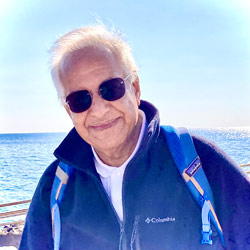
Dr. Ing. Michelangelo Barba
Bachelor and Master in Electronic Engineering and PhD at the Polytechnic of Turin. After a few years in the aerospace industry (Alenia Gruppo Sistemi Spaziali, SAAB Space, MATRA Espace), engaged in scientific satellite projects for ESA (European Space Agency), from 1990 to 2020 he worked in the field of the European Patent Law for the ‘EPO (European Patent Office) in the sites of The Hague, Munich and Berlin. In 2021 he founded his own consultancy company in the field of Patent Law (MSCU Pro-Knowledge Ltd based in Cyprus) with a focus on Computer Implemented Inventions and Artificial Intelligence.
Guardians of Ethics and Law: influencing voices shaping AI’s Legal and Ethics Landscape.
As of 2021, there were several prominent voices in the discussions around the legal and ethical implications of the use of AI. This list includes academics, technical industry leaders, and activists who have been in the forefront of shaping and animate the debate. In this speech many of them will be cited by illustrating their ideas, concerns, publications and the opinion ’groups they contributed to create.
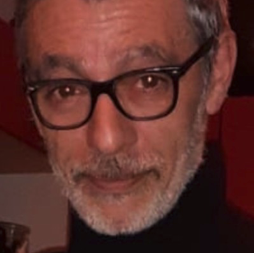
Dr. Maurizio Salvi
Maurizio SALVI holds a PhD on Health Sciences (Ethical, Legal and Social Aspects –ELSA, University of Maastricht, Leuven and Vienna)), a European PhD in biotechnology (ELSA- from the European Association for Higher Education in Biotechnology), a University Master Degree in Modern Literature (5years, University of Rome La Sapienza), a University Master Degree in Philosophy (5 years, University of Rome La Sapienza) a post degree specialization diploma in Bioethics (University of Rome La Sapienza). Dr Salvi has made research, lecturing and institutional working activities on ethics of R&D since 1992; first at the University Gregoriana of Rome (1992-1993) then University of Rome la Sapienza (1994-1999, Centre of Bioethics), then the University of Maastricht (1996-1998, Institute of Humanities and Social Sciences), then the University of Leuven (1998-2000, Higher Institute of Philosophy), and other national or international research Organizations (1998 -2001, ISSOCO (Research Institute funded by the Italian Senate). He was the Director of the Course “Human Rights and Ethics”, Inter University Centre, Dubrovnik (1999-2001); and he is member of several professional associations on governance of research and development and scientific committees of pan-European or International research initiatives (USA NIH Institute, University of Durban; Summer University; La Sorbonne Paris, Fondazione Einaudi etc.).
In 1998, he joined the European Commission to work on Ethical, Legal and Social Aspects of science and technology. In his role, he has worked, inter alia, on governance of science and ethics for different advisory body to the Presidents of the Commission. Between other things Dr Salvi is currently representing the European Commission in ESPAS (Inter-institutional strategy and policy analysis structure) clustering nine EU Institutions (Secretary General level). The aim of this work is to contribute to the design of the policy agenda of the forthcoming Leaders of the EU Institutions. Dr Salvi has published extensively governance of science and new technologies and protection of fundamental rights in EU policies in Europe, USA, Japan, South America, and New Zealand (more than 50 scientific papers) and was a member of the Drafting Working Group of several EC policy papers, (Nanotechnology, ERA, Life science Strategy, Human embryonic stem cells, digital agenda, GMO, IoT,
bioweapons, security and surveillance, internet governance, genetic testing, synthetic biology, nanotechnology, energy, biometrics, AI etc.). Dr Salvi is also co-authoring the European Commission Strategic foresight reports for policy outcomes.
Dr Salvi has given speeches at conferences on protection of fundamental rights in USA, Japan, Europe, he organized more than 100 International events on the above issues with EU Member States, International Organizations (WHO, CIOMS, FAO, OECD, CDBI, EMBO, UNESCO, etc.) and he organized meetings on protection of fundamental rights in science and new technologies (EGE and NEC Forum) hosted by 18 European Union Council rotation Presidencies.
Ethics and Artificial Intelligence
The debate on ethics and Artificial Intelligence has characterized the initiatives of the European Union and of the international community on the design and responsible use of this innovative technology. In this effort constitutes a precise line of Community policies in recent decades. In my speech I will show how the European position on AI and ethics is the result of a political line precise and what are the cornerstones of this effort. I will therefore set out not only the fundamental principles of the European position, but also the initiatives aimed at making concrete a responsible use of AI in Europe. Concrete cases, practical aspects and shadow lines will all be addressed to show the complexity of this challenge and the geopolitical implications associated with it.

Dott.ssa Giovanna Giuffrè
Project Manager in European projects, expert in strategic foresight. I have been collaborating with ISINNOVA since 2008 and have been a partner since 2010. I have been involved in the management of various IEE, FP7, Horizon 2020, Horizon Europe projects in the sectors of research and innovation, health and sustainability. For the past ten years, I have been conducting planning exercises strategy in very different areas and with very different stakeholders, offering support to European and national authorities in building paths aimed at formulating effective and innovative medium-long term strategies. Starting from the application of strategic thinking techniques on the topic of energy, I then collaborated in foresight processes regarding urban development, the future of research and, in recent years, human and ecosystem health.
Previous experience includes working with European networks of cities (EUROCITIES and ICLEI) and a network of non-governmental organizations (Medlink).
I have a degree in Law from Sapienza University, Rome, a Master in European
Studies from the College of Europe, Warsaw, and a Master in Social Foresight from the University of Sociology, Trento. Among the most recent works – AI4SoilHealth: Accelerating collection and use of soil health information using AI technology to support the Soil Deal for Europe and EU Soil Observatory (Horizon Europe); “Foresight support in support of the Mission Board Soil Health and Food” (DG RTD); “Reimagining the food system: scanning the horizon for emerging social innovations” (EEA) ; Impact of COVID-19 on European consumer behavior (DG JUST) , RARE2030 (DG SANTE), FRESHER – Forecasting and models for European health policy and regulation (DG RTD).
Possible metamorphoses: the role of AI for soil health
What can be the role of digital infrastructures and AI in promoting sustainable behaviors and policies? By examining the soil – the least known and protected ecosystem – the presentation aims to reflect on the questions that need to be asked today to be sure of building intelligence – artificial and real – capable of promoting the essential green transformation in a way that is also fair, competitive, as well as culturally acceptable.
The presentation is based on ISINNOVA’s ongoing work as an interface between policy and science for the project “AI4SoilHealth — an open access European-wide digital infrastructure for monitoring and forecasting soil health indicators. The goal of AI4SoilHealth is to co-design, create and maintain an open-access European digital infrastructure, compiled using artificial intelligence (AI) methods combined with new and in-depth knowledge and measurements on soil health. The AI-driven data infrastructure will work as a digital twin for the real-world biophysical system, creating a digital twin of the soil. The project involves 28 partners and is led by Aarhus University. ISINNOVA’s work is aimed at promoting dialogue and understanding between the different actors of science, politics and civil society in order to ensure that the models, algorithms and infrastructures built today are also capable of responding to the different emerging needs and transformations underway.
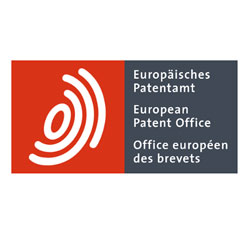
Workshops Online
1) Protecting inventions in Healthcare technologies. Medical methods and CII (Computer Implemented Inventions).
2) Trends and challenges in Healthcare technologies with the focus on AI and Telemedicine. Shaping the future of Healthcare.
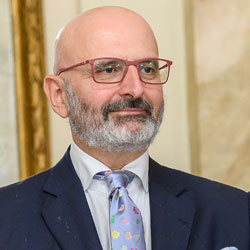
Moderator: Alessandro Butticé
PROFESSIONAL EXPERIENCE
From April 2018 to today Freelance journalist
Correspondent from Brussels for www.aise.it and collaborator of Il Riformista, Formiche,
Euro Comunicazione, Il Finanziere and Fiamme Gialle.
EUROPEAN COMMISSION
Grade: AD14 – Head of Unit 2013-2018
October 2012-September 2013 Anti-fraud and security advisor
February 2012-September 2012 Policy advisor to the Director
European Commission – European Anti-Fraud Office (OLAF), Brussels, Belgium
Directorate D – Politics
2009-Jan 2012 Head of Unit
2006-2009 Head of Unit and Spokesperson of OLAF1
1999-2006 Head of unit and spokesperson of OLAF2
Creator and President of the OLAF Anti-Fraud Communicators Network (OAFCN).
“GUARDIA DI FINANZA”
Rank: Brigadier General (Reserve)
1992-1999 Head of sector
European Commission – General Secretariat SG/TF – UCLAF (Anti-Fraud Task Force),
Brussels (Belgium)
1990-1992 Seconded national expert (END).
1990 Section Commander
Guardia di Finanza, Central Office of the Tax Police, Rome (Italy)
1985-1990 Deputy head of the Press and Communication Office
Financial Police, General Command
National Press and Communication Office – Rome, Italy
1984-1985 Deputy Commander, Guardia di Finanza Company “Rome Airports”, Rome – Fiumicino (Italy)
Responsible for 450 military personnel. Responsible for the management of anti-drug, anti-smuggling, and anti-terrorism activities in the 3 airports of Rome (Fiumicino, Ciampino and Urbe).
UNIVERSITY EDUCATION
2004 Master’s degree in Economic and Financial Security Sciences, University of Tor Vergata, Rome
1988 Master’s degree in economics and business, La Sapienza University, Rome
1985 Master’s degree in Law, University of Salerno (Italy)
1989 Specialization diploma in journalism and mass communication (with honors), Free International University of Social Studies (LUISS), Rome
Decorations
– Commander of the Order of Merit of the Italian Republic (2019);
– Officer of the Order of Merit of the Italian Republic (2013);
– Knight of the Order of Merit of the Italian Republic, aged 34 (1993), motu proprio of the President of the Republic of Italy;
– Mauritian Medal (2010);
– Silver Cross of the Guardia di Finanza (1995);
– Long Service Medal (1999);
– Cross with white badge of the Order of Merit of the Guardia Civil, Spain (1996).
Other information – Delegate for Belgium, the EU, NATO, and the international organization of the National Association of Honorees of the Order of Merit of the Italian Republic (ANCRI);
Vice President of the European Association of Institutional Press and Communication Services (EAPO-IC – until 2019)





